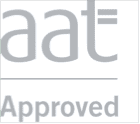Guide to Coding Languages – Most In-Demand Coding Languages
The modern world runs on computers. Hence, those who write code for them have incredible market value.
Knowing coding languages can set you up for success in a variety of professional fields. Further, this skill set can benefit you both in the short term and throughout your career.
There is a massive demand for jobs in technology in Ireland. And this demand will continue into the future. So understanding different types of coding languages can open the door to many job opportunities.
There are many different paths to break into this high-demand and high-earning field. In fact, you can gain the necessary skills without going to a traditional university. With software and web development training, such as the courses at Pitman Training, it’s possible.
Today, let’s break down what coding languages are and why they are important. Plus, we discuss what coding languages you should consider learning in the future.
Related: Best Jobs in the Ireland 2022

What Are Coding Languages?
Coding languages are different ways of providing instructions to computers and programs. The same way spoken or written languages communicate information, so do coding languages. They allow programmers to instruct computers on what and how to do specific things.
There are dozens of different computer programming languages. A skilled software developer will use them to communicate with a system or terminal.
Moreover, programming languages are further distilled into “binary”. This is the base language that all computers understand. Binary consists of sequences of ones and zeros.
Each coding language comes with its own features, advantages, and disadvantages. What’s more, you can use different programming languages for different tasks. For example, HTML allows you to create web pages or instruct web browsers.
With Java, you can construct applications in game consoles, cell phones, and much more.
The different types of coding languages you learn through software developer training can affect:
- What jobs you can hold
- What type of coding tasks you can complete
- What kinds of computer software you can make
- And more
But no matter what, learning how to use coding languages in IT courses will benefit you. It can be a great boost to your resume and employment prospects.

In-Demand Coding Languages
Learning any coding language is a huge benefit for your professional future. Yet, certain coding languages are more in-demand or desirable than others. Let’s take a look at the most in-demand coding languages. This way, you can prioritise your training efforts.
JavaScript
You have most likely heard of JavaScript before. That’s because it is one of the most common and popular coding languages. In fact, it currently stands at #1 in the world, according to Stack Overflow.
This client-side programming language runs inside browser programs. Browsers using JavaScript include Google Chrome, Internet Explorer, and Mozilla Firefox.
The interesting part, JavaScript processes commands on individual computers, rather than on servers. Because of this, JavaScript is usually placed into ASP or HTML files.
JavaScript is most often used by specialised developers. But, web developers and software engineers also make use of it.
The finance, healthcare, marketing, design, and engineering sectors often use JavaScript. They favor it because of its use in designing web pages that are easy for their customers to navigate. Organizations like WordPress, LinkedIn, and others rely on JavaScript.
JavaScript is easy to learn since it contains very basic features. It also operates on many frameworks. Plus, you can access JQuery, a public JavaScript library, to put together your own programs.
Although the names are similar, JavaScript is not related to Java.

HTML
HTML stands for “HyperText Markup Language”. HTML is the standard coding language you can use to make web pages. In brief, it ensures web page text and images have the correct format. This is key so that Internet browsers can display them in the proper manner.
As a result, HTML has widespread use in many jobs, including web developers, software engineers, email designers, technical editors, and web designers. Apple and many more organisations use HTML. If you have ever built a webpage, you have also used it, if only a small bit.
HTML is a great coding language to learn since it’s very easy to understand. Despite its evident simplicity, HTML is versatile and flexible. And, it allows you to make many different web pages or elements. Once you know HTML, you can perform almost any web-based task.
CSS
CSS stands for Cascading Style Sheets. This programming language is often used in conjunction with HTML. If HTML is in charge of the organisation of the site, CSS is in charge of the aesthetics.
CSS is important because it manages the design elements of the site. This includes the size, color, and position of all the elements on the page.

The use of cascading in the name tells a lot about this programming language’s use. Once you choose an aesthetic element for the “parent”, it will cascade down to all the “children”. In other words, you do not need to repeat the code throughout the whole site. This factor makes CSS a convenient and popular programming language.
HTML, JavaScript, and CSS are often used together. These three programming languages allow you to create an optimal user experience.
Java
This programming language is another that is high on the list of ‘must-have’ skill sets.
This object-oriented programming language is often used in the finance and e-commerce sector. These sectors favour Java because it is very secure and can handle a ton of data. Many big corporations use Java, including Airbnb, Google, and more.
Java is also popular because it is easy to use and quite easy to learn. There are also many open-source libraries that you can reference for help as you are learning it.
Another unique aspect of Java is that it is a cross-platform program language. Java can run on any operating system, regardless of where you write the original code. Thus, programmers call it a “write once, run anywhere” programming language. This also makes it ideal for use in app and game development.

Python
Then there’s Python. Python is one of the most advanced programming languages in web developer training. It is object-oriented and built on flexible, robust semantic principles.
Python is often used by specialised Python developers, backend developers, and software engineers. Many other professionals in the information technology and engineering sectors use it, too.
Lots of major organizations use Python, including Google, Instagram, and more. NASA makes use of Python in some of its software for satellites and rockets, as well.
The major advantage of Python? It’s a perfect choice for rapid application development or RAD. That’s in part because it lets you integrate different systems fast. (Since it operates as a “glue” or scripting language.) In this way, Python lets you stream together different ideas or actions in a seamless manner.
Even better, Python is quite simple to learn and easy to read. It’s associated with many different web frameworks for developing web applications. So it’s perfect for combining with other languages such as JavaScript.
With Pitman’s Python course, you can become well-versed in this programming language.

SQL
Last but not least, is SQL. SQL stands for Structured Query Language. It differs from the other programming languages above but is just as important.
While the others are third-generation languages, SQL is a fourth-generation language. It is not used for building websites, software, and applications as the others are. Instead, SQL is used for managing data in a database.
SQL is one of the few languages that databases understand. It is also the most popular among companies. Thus, it is necessary for developers and programmers to know how to work with it.
The finance sector often makes heavy use of SQL. For example, the payment system Stripe uses SQL to manage its database. Music applications like Spotify also use SQL to manage data. When the system recommends music to suit your preferences, this is with the help of SQL.
Almost any system you can think of that stores, retrieves, and works with data, uses SQL. Thus, SQL courses will boost your employment prospects.

Careers That Use Coding
Many different careers use coding. In fact, you might say that every industry uses coding to at least some extent.
Whether a company has a website or uses software in some way, they use coding. This includes all businesses, from the smallest startups to the largest corporations.
Further, skilled coders and developers have to create that software for companies. And they must learn and master many different coding languages to earn their positions.
Some of the most common and popular careers that use coding include:
- Software developer
- Computer programmer
- Game developer
- Web developer
- Database administrator
- Network systems administrator
- Computer systems engineer
- Computer systems analyst
- Cybersecurity specialist
Remember, each of these careers uses certain programming languages over others. So the type of programming language you study can impact your career possibilities. It helps to learn which skill set will allow you to qualify for a specific position.

How Can I Train for a Software and Web Development Career?
The above coding languages are ideal skill sets to learn. They will allow you to grow in your career or to find your next professional challenge. Further, learning different types of coding will benefit your employment prospects and bolster your resume.
It’s easier than ever to learn how to code with Pitman Training!
Check out our Advanced Software and Web Developer Programme. This diploma can open up a variety of career opportunities in the field. It will give you the skills to qualify for software and web developer positions.
If you are brand new to programming, check out our Programming Fundamentals Diploma. It will help you gain a strong foundation in key programming languages. With it, you will be well-equipped for entry-level software development positions.
Contact us today, to discuss the right programme for your career goals!


















